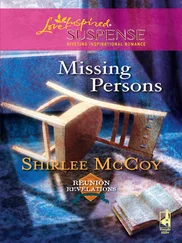Through her fever Dvora beamed.
There’s a music class! Berel exclaimed. I almost forgot.
Look! she said, voice tingling with pride. Look! She stretched her arm underneath her cot. Her hand emerged with a long bar of chocolate, a piece of bread, a half stick of butter. Look, Berel. They give us so much here. Take it. Sima is so thin and small. She must catch up. She needs food for the mind, now, not just the body. Dvora laughed.
She was giving it to him as well as to her daughter, Berel thought. She let him keep his pride.
Dvora, he said, they give us enough-this is for-
She made a face. I hear what they give you, she said. The women say. Porridge, and bread, and coffee that looks like dirty water.
Berel shook his head.
We get eggs here! They cook us eggs. So here. Until you have better.
For a moment Berel thought he should not tell Dvora about his job; he didn’t have it yet, it was not yet sure, and perhaps it was bad luck to announce something he might have to recant later. But it was too tempting. While she fed him from her little prison, her little rest from the struggle of the world, he was getting on with life. He was learning to live: work, school, sleep. She was still expending her strength to survive. When he told her she looked relieved, glad at his competence, happy for him, happy that he was again becoming a man.
He came downstairs to the same chair in which he had dropped his daughter. She was sleepy, but too heavy to carry, and he wanted her to walk outside with him, to see. Here was the land that Jews made. An ugly land, to be sure, ugly and deformed, filled with military props, watched over by British, but something they had made. Not the promised land, where, as he used to say to Sima, oranges were more plentiful than potatoes, and Sima’s eyes would widen in temptation, but still a land Jews had made. Work, school, orchestra, news, even a little government.
He was not a pious man, but he wanted to go to a service, to sing a little. He still knew how to sing.
Sima, he said. Your mother gave us a bit of chocolate.
Should we save it? said Sima.
I suppose. Berel sighed.
THE BREAKFAST LINE TOOK longer than he had expected-some kind of argument several families ahead of them-and Berel and Sima found themselves trotting to the school building to make it in time.
The schoolroom startled him. Only a day before, he had not believed that there could be a school for the refugees on German soil. But once he knew it existed, the dream of it expanded to something luxurious, something even he had not had as a child growing up in his town of one-room schoolhouses. He had thought: a garden, and a music room, and perhaps even an area for reading, where children could stay quietly. But instead he saw one room carved out of office space in a barracks, where perhaps forty bony-faced children of all ages sat in metal chairs, writing on tables spread between them, sharing books. One or two faces turned to look at them. They had entered the classroom a few minutes late, and the teacher, writing Hebrew letters on a blackboard, was calling out words for the children to repeat.
An aide to a teacher, a young man, perhaps fourteen, came over to introduce himself.
Chaim, he said.
Sima said nothing.
This is Sima, said Berel. Sima Makower. Now, Simale, go.
Sima didn’t move. Berel crouched down. Go, Sima.
Come, Sima, said Chaim. He held out his arms.
Sima shrank into Berel’s chest.
Please, said Berel. But he could feel her shaking, and through his shirt the first drippings of tears soaked through to his skin.
Chaim said, When she’s ready. He moved to a table where another child was writing.
Sima’s silent tears gave way to muffled sobs. No, Tatteh , no. Don’t leave me.
He put on his stern face. Sima. Behave. School is for ladies, not babies.
But she was sobbing fully now. Don’t leave me, don’t leave me.
The young man trotted back to them. You must not cry, he said in Yiddish, a look of anxiety on his face. It upsets the children to hear crying. It scares them.
Indeed, a child near them had her hand in her ear, and another glared at the back of Sima’s head. What was Berel to do? If he was late, even twenty minutes late, someone else would step in to take his job, and he would be directed away again, back to the central office for other work, manual work. The process would begin again, the search, the fatigue, the lines for soup that barely filled him, the cramped cots behind the family sheet. They would remain in the barracks, unable to afford or even make connections for a private dwelling, a washroom and toilet, a little table to read and play cards. This was how people gave up their future. This was how people became the stopped bodies in the barracks. To stay here until she stopped crying-it was impossible. Dvora would know how to tell her to stop. Dvora would know how to feel the harshness, express the desperation. Now, all of a sudden, he just knew how to act it.
Sima, he said, whispering in her ear as he pulled her outside the classroom door. Think of your mother. How disappointed she would be.
Sima bawled harder. Quarantine! she wept. My mama has quarantine!
At one time it had shocked him, Sima’s ability to keep silent at moments of danger. One night five years ago they had crept across an icy river into Bialystok, along with dozens of other families, and the memory of the quiet, even the smallest child perfectly silent, still haunted him. What a knowledge for a two-year-old to have! He and Dvora had done their best to protect her, but now, in the face of Sima’s wails, he thought perhaps they had protected too much, keeping her locked inside their crumbling dwellings while they did their night work, blanketing her with their bodies as she slept, watching her every move if she wandered out to meet other exiles in the villages. She had been kept in a bright isolation, like a sickly child he had known as a boy.
Just for a moment, I’ll wait, said Berel. But only a moment. You must study.
Sima looked at him, the tears streaming.
All right? But only a moment!
She quieted herself and moved into a small chair. Every few minutes she would look over at him to see that he remained. But by noontime he could see her attention was on the teacher, who drew letters on the board in Hebrew for the children to copy. Sima would be all right. Berel could leave without a fuss.
But he did not. He watched Sima etching letters, slowly, much more slowly than the others, and he watched her imitate the older boy at the desk next to her as he rubbed an eraser across his page and blew the dust from the eraser away. He watched her tap her thumb against her finger as she listened to the other students sing a song in Yiddish, a song he himself did not know. All morning and all afternoon Berel sat in his rickety chair, not getting up to eat or to drink, watching his daughter, her first day of school.
February-April 1946
C HAIM LEARNED HEBREW JUST as Pavel would have wished him to: without struggle. He showed off his facility to Pavel every Sunday evening. The letters he already had from Yiddish, and the grammar was so simple, so clear, that it seemed to Chaim he had always almost spoken it, like a precise version of the speech babies made. He was preparing to read for the Sabbath service of his bar mitzvah, and he studied the whole portion, even beyond the verses he would sing, the story of Lot ’s wife, the mother transformed to a pillar of salt from looking back at her city, her home, her neighbors on fire.
He had heard the story in his childhood, but as an adult-already fourteen, he had lied to make himself younger to Pavel, bewildering himself even as the lie fell out of his mouth; he had no reason to lie now, and yet any truth, no matter how innocent, still seemed dangerous to reveal-as an adult he read parts he had not remembered from before, the panic of Lot to save himself, the family’s sins after the destruction, the unnamed wife, mourned not at all. If there was someone to be punished, it should be Lot, who offered his daughters in sacrifice to the savage townsmen. It was unjust that he was to be saved, along with the daughters he would not protect. Abraham had spoken out for Lot. Why could not Lot speak out for his wife?
Читать дальше











